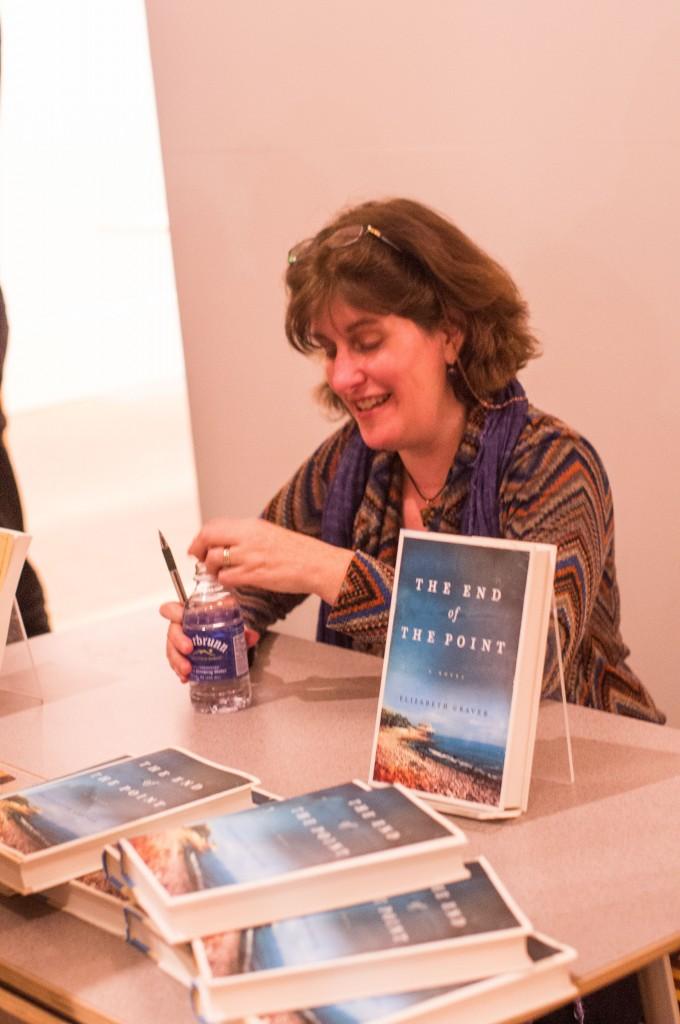Last night, award-winning author Elizabeth Graver filled Faulconer Gallery with moving images from her most recent novel, “The End of the Point.” Her book describes the story of a family over generations and their summer home, which becomes as much of a character as anybody in the book. She explores themes of war, love, time and relationships.
“[My inspiration] can come from a lot of things, depending on the project. Sometimes it will come from my dreams, sometimes from a newspaper article, sometimes from a voice that I want to explore and learn more about. In this case, it was really a place and time I was curious about, because it was so different from my own growing up: a place that held multiple generations. It raised a lot of questions for me about what it meant to be a family, and the power of place,” Graver said.
It took Graver around eight years to write the novel, because of a busy teaching life, while raising kids, as well as multiple revisions and re-thinkings. She had time to do extensive research and make even the tiniest detail as real as possible. She explained that she “wasn’t in a hurry … There will always be flaws, but I wanted to get it as close to my vision of it as I could.”
Graver develops a strong connection with the idea of place in her novel, and the way it has a story of its own.
“It really is about [place], for a family that is going through a lot of fracture and a lot of loss and illness, it is sometimes more stable than the human beings, because it’s always there. At the same time, it’s subject to environmental degradation or being sold, so it is in fact not all that different,” Graver said.
Graver’s journey into the world of an author began in her youth.
“My desire to write has been with me since I was a little kid. It merged for me with other activities like drawing and imaginary games, both of which I did non-stop as a child … I started to write more seriously, and then in my 20s it became a question of how to earn a living, and how to be out and engaged in the world … Finding the conditions to put the work where it will be nurtured took me a little while to play around with.”
As an English professor at Boston College, and having experienced it herself, Graver understands aspiring young authors and their fears. She gave advice to young writers last night.
“Read and read and read, be patient, find community and never lose hold of the joy and play at the center of [writing],” she said. “Most of us write because we read and we imagine, and there’s something about that almost child-like spark. I get sad if I feel like it gets pushed out by some sense of pressure, so there has to that freedom in it.”





























































